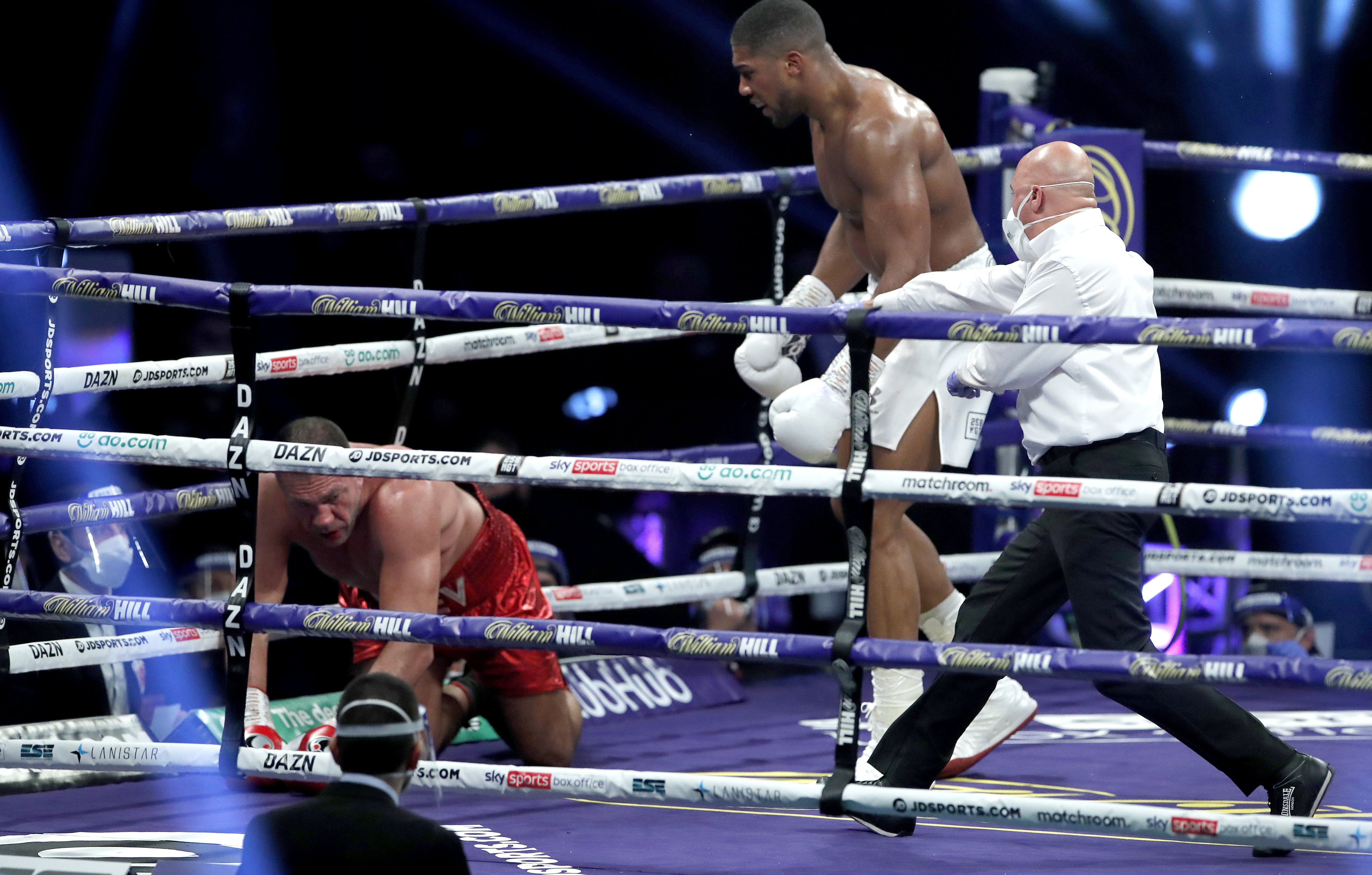The Independent's journalism is supported by our readers. When you purchase through links on our site, we may earn commission.
‘He’ll finish you with a sledgehammer’: What it’s really like to get punched by Anthony Joshua
Unbeaten heavyweight Frazer Clarke, a former training partner of ‘AJ’, has faced the furious blows of the ex-world title holder... and lived to tell the tale to Alex Pattle


There’s a comparison of hitting something with a sledgehammer, or hitting something with a normal hammer a lot of times – you know, like when you hit a nail,” Frazer Clarke says.
So, which comparison applies to getting punched by Anthony Joshua? Well, both, it turns out.
“[The latter] is what it is with Joshua, then he’ll finish you off with a sledgehammer on the last shot,” Clarke tells The Independent. “Boom!”
Clarke knows what he is talking about, not just as an experienced boxer – unbeaten so far in his professional career – but as one who has first-hand experience of Joshua’s punching power. Clarke, 31, spent years training with “AJ” and followed his fellow Briton’s Olympic triumph at London 2012 with a medal of his own at Tokyo 2020.
“To be fair, this is probably the longest time in my boxing career that I’ve not been hit by Anthony Joshua,” the bronze medalist says. “I think the main reasons are that he boxed a southpaw [Oleksandr Usyk] over a period of about two years, and before that, he boxed Andy Ruiz Jr, whose dimensions were different, then there was Kubrat Pulev [while] I was preparing for the Olympics. So, it’s been a while.”
Still, it is not a sensation that slips from the memory.
“It’s not nice,” Clarke says unironically. “It’s not nice being hit by any heavyweight, but...”
But there is a misconception about Joshua, according to Clarke.
“You only have to look at Anthony Joshua, the man is made of muscle – he has muscles coming out of places where muscles shouldn’t be – but when people think about Joshua punching, what they don’t realise is... it’s not the one punch. He’s actually a really good combination puncher, and a fast puncher.
“When he gets the opportunity, he punches hard and often, and that’s almost worse than one single shot. You can prepare for a single shot – you can sort of brace on impact – but what you can’t prepare for is two, three, four shots from different angles.”
Indeed, watching all 22 knockouts from Joshua’s 25 professional wins confirms Clarke’s point. Joshua, 33, has often been criticised for a perceived lack of ring IQ and versatility, but when the former two-time heavyweight champion begins nudging that nail, he does so with speed and from all angles, before hauling out the sledgehammer.
Hector Alfredo Avila was admittedly toppled by a lone left hook in 2014. Charles Martin, similarly, was sent sprawling into a dimension with which he was entirely unfamiliar, courtesy of a piston right cross in 2016; the only set-up on that occasion was a feinted hook. With his most recent KO, in 2021, Joshua put down Kubrat Pulev for good with a sharp right straight.
That knockout of Pulev, however, only arrived after Joshua had dropped the veteran numerous times with a variety of punches in a series of combinations. Furthermore, every other finish was crafted with shots from both wings, often aimed not only to crack the cranium but also to brutalise the body. Even Joshua’s signature knockout of Wladimir Klitschko in 2017 was a result of AJ swarming the Ukrainian against the ropes, rather than the legend being finished by that famous uppercut – which actually came moments before the stoppage.

In any case, Joshua’s vaunted power may not even be his greatest asset.
“He’s the hardest worker in the room, the most determined person in the room,” Clarke says. “To train with him is a pleasure. But also, what I’ve taken from him the most over the last few years is: my goal is to lead a camp like him, from the nutrition to the resting... We all want to be at a level where we can have our own chef, [for example], and I think he’s really honed in on investing in himself.”
With the help of a personal chef and nutrition team, Joshua operates as professionally as any boxer, with his well-crafted heavyweight frame also requiring 5,000 calories a day, as he revealed before fighting Alexander Povetkin, and a lack of cheese, gluten and white rice. “The first thing I do in the morning is drink a litre of water; that helps me get my metabolism going,” Joshua told GQ at the time. “I’ll have some fruit, so it’s not too heavy for my stomach. I’ll then have a proper breakfast, which is what most people have for lunch because I’m eating at around 11am – rice, chicken, vegetables and sweet potatoes. Sometimes, I’ll switch it up, and have pork instead.
“If I want a snack, it’ll be either yoghurt and honey or meringues. By dinner, I’ll have completed all of my main training sessions, so I’ll have red meat or fish: steak or salmon with pasta, whole grain rice or quinoa, and vegetables. I do allow myself to indulge every once in a while, even when I’m training. I’m lucky enough to have a trainer who prepares homemade protein bars and protein shakes for me. I may also have something like a mousse or a yoghurt.”
That level of precision and dedication, as Clarke notes, is “what you need to do to get the best out of yourself, especially at world level”.
For Clarke, getting the best out of himself also involved taking the worst punishment that Joshua could offer.
Click here to subscribe to The Independent’s Sport YouTube channel for all the latest sports videos






Join our commenting forum
Join thought-provoking conversations, follow other Independent readers and see their replies
Comments